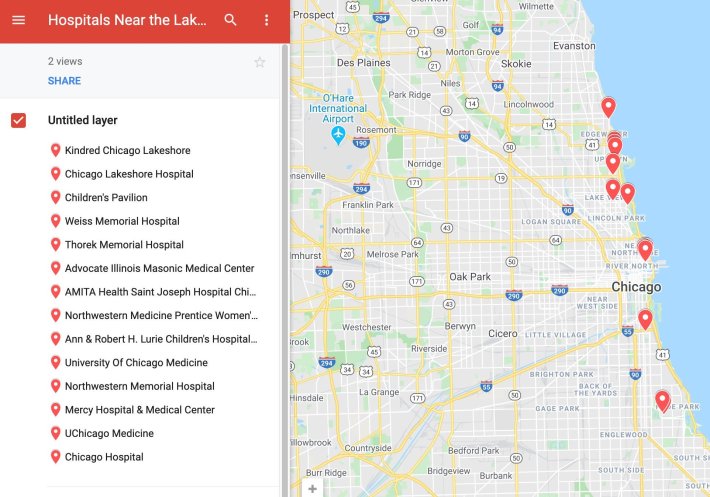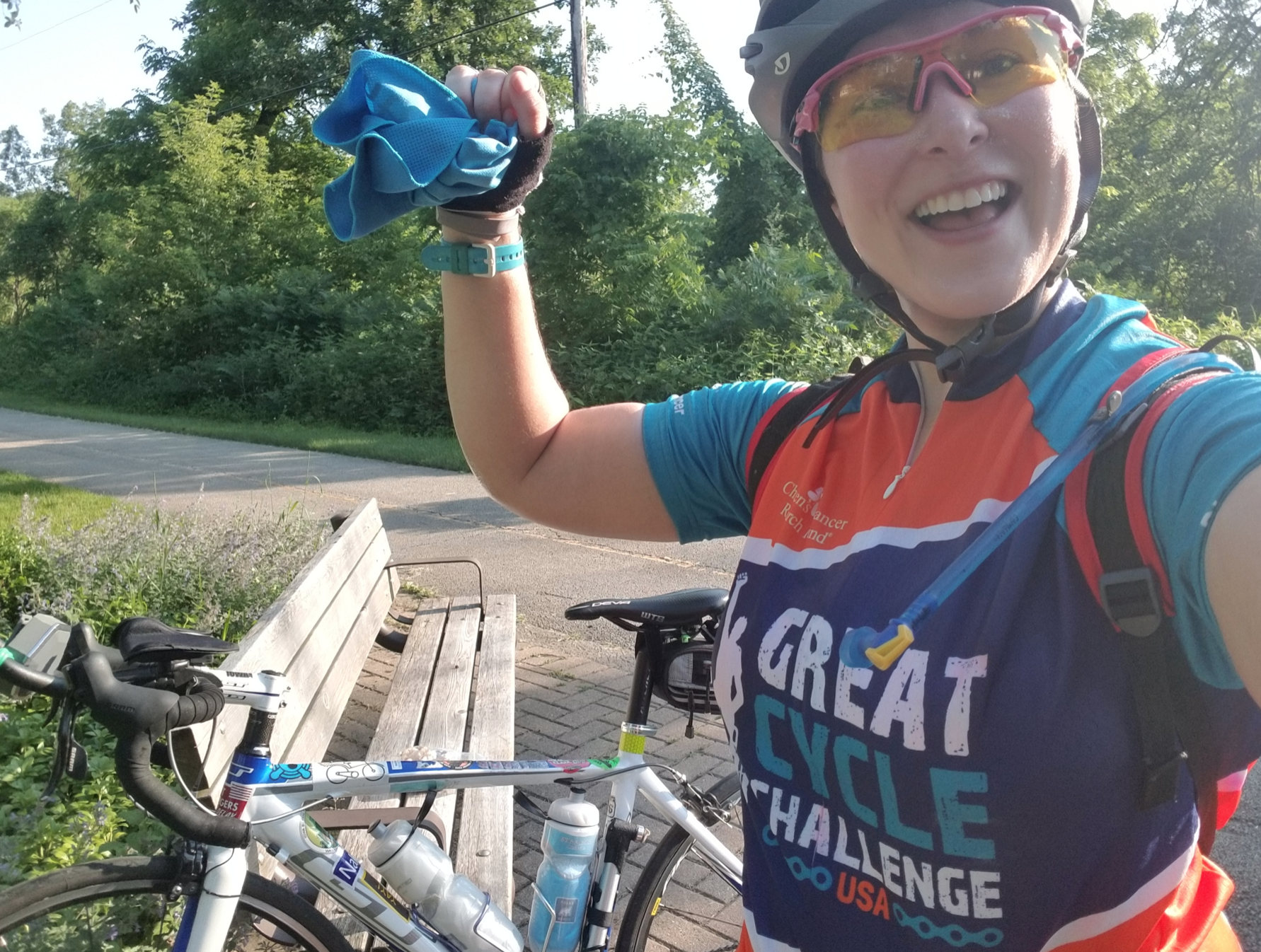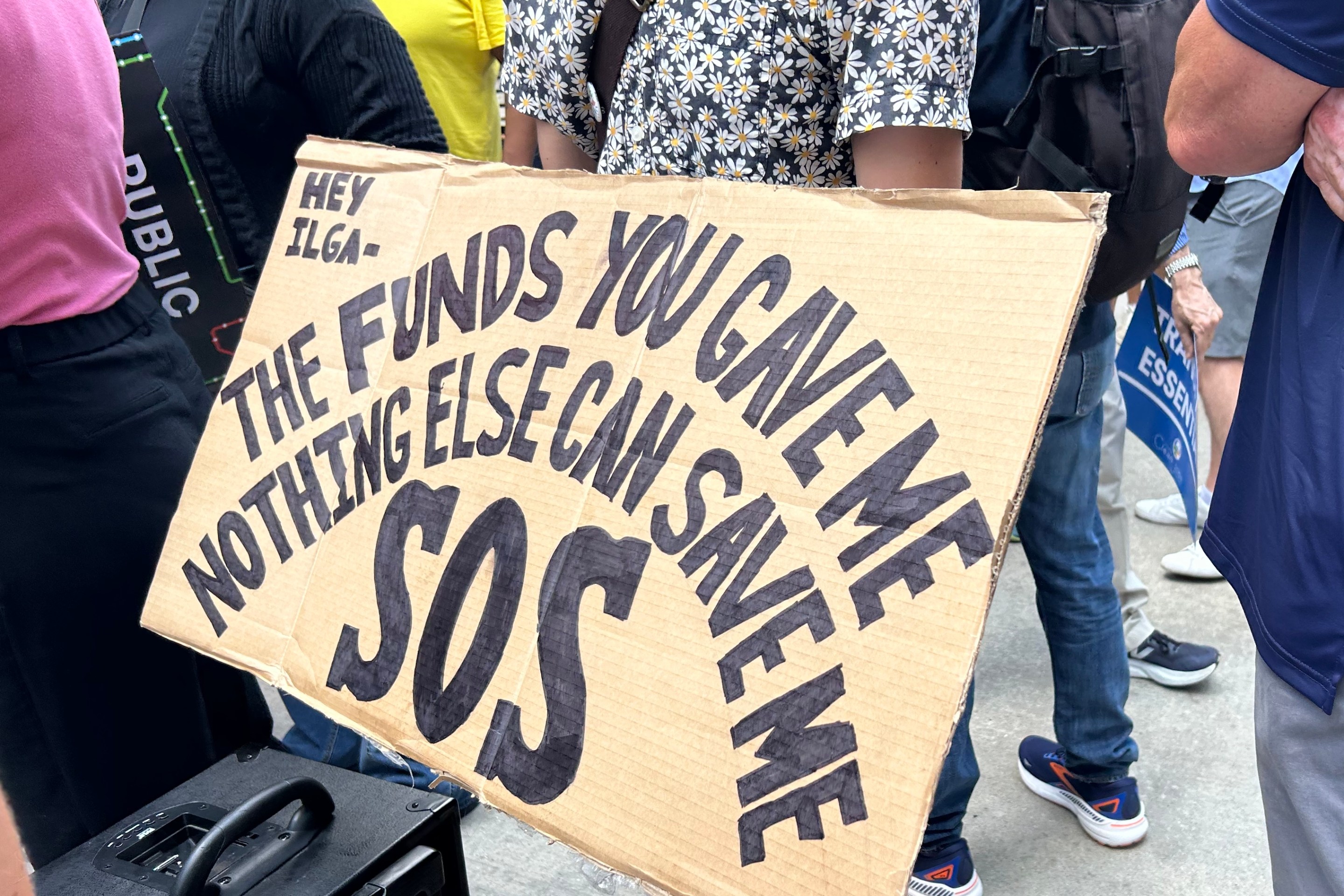Last Wednesday was one of the first warm, sunny days of 2020, drawing throngs of quarantine-weary people to the parks and lakefront. And while it appears that the majority of Chicagoans have been observing social distancing guidelines, many out to enjoy the day did not, congregating in large groups and playing team sports, behavior that could hasten the spread of COVID-19. Mayor Lori Lightfoot took swift action, closing the entire lakefront, along with The 606 and Chicago Riverwalk recreational corridors.
Considering the frightening contagiousness of the virus and exponential increase of cases in the U.S., the mayor’s response is understandable; slowing the spread of COVID-19 is priority one. But the indefinite closure of the Lakefront Trail, Chicago’s superhighway for cyclists, eliminates an important car-free bike route for essential workers. At least fourteen hospitals are located near the shoreline path. Moreover, the McCormick Place convention center, located right next to the trail, is being converted into a 3,000 bed temporary hospital.
Kyle Lucas, an architecture student whose day jobs at a hotel and a delivery market are considered essential under the Illinois Stay at Home order, launched a Change.org petition to reopen the Lakefront Trail to commuters, as well as open streets across the city for car-free transportation and recreation, so that cyclists can ride without worrying about being struck by drivers, and pedestrians don't have to crowd the sidewalks. The petition has garnered over 530 signatures in one week.
One signatory is Bridget Fowler, a physical therapist specializing in medically complex patients who normally uses the Lakefront Trail to bike commute from her home in Rogers Park to her job at a hospital in Streeterville. “I typically ride two to three times per week during fall and winter and four to five times per week in the spring and summer,” Fowler said. “Typically I give up my parking spot [during the warmer months] too. And I’m lucky that I have a car and a place to park. A lot of people are not so lucky.”
Besides biking and driving, (let's not even talk about taxis and ride-hail, which make social distancing impossible), the Red Line is Fowler's remaining option. But while it's important that the CTA keeps running through the pandemic to serve essential workers and transit-dependent people, Chicagoans should avoid riding if possible to minimize their viral exposure and de-crowd the system for those who must use it.
"I don’t want to take the CTA because it’s high-risk,” Fowler said. “You never know who's... following stay at home orders."
But biking to work on busy streets doesn't seem safe to Fowler either. Even though car traffic is light nowadays, many remaining of the remaining motorists are taking advantage of the lack of congestion by driving dangerously fast. "I ride ten miles each way -- I try to avoid that.”
Therefore, ever since the mayor closed the Lakefront Trail, Fowler has been driving to work. She said, “I’d like to give back my parking spot and ride more," like she usually does this time of year.

So Fowler signed the petition to reopen the Lakefront Trail for commuting in hopes that a compromise can be reached that prevents the spread of COVID-19 while providing essential workers, including medical professionals like her, a healthy and safe way to get to work. “At the very least, since they’re already going to have police at junctions along the lakefront path, they could open up the fence barriers for... healthcare workers,” she said. “They could check our badges to go through. On the back of my badge it says to please allow bearer of this badge to pass through road blockages to go through in the case of emergency.”
Of course, other kinds of essential workers who don't have the option of driving any don't want to risk viral transmission on transit need a safe way to commute as well. Reopening the Lakefront Trail exclusively for non-stop commuting would provide one, as well as helping to free up more space on the CTA for social distancing. Chicago could go a step further and take a page from Bogotá, Colombia, which recently opened 47 miles of temporary bike lanes to reduce crowding on transit.
Fowler acknowledged the difficulty of managing crowding on the lakefront during crisis. “It’s a challenge obviously,” she said. “[If] you allow it for one group of people, then others will want to take advantage of the situation, and that’s the tough spot the mayor has in front of her. [But] I want people to know that, if you see a cyclist, it could be a medical worker on their way to work to save lives... We all need to support each other to do what’s best for our health, the environment and our sanity.”
To find alternative bike routes while the Lakefront Trail is closed, check out Streetsblog Chicago's Low-Stress Lakefront Pandemic Cycling Route map.
Here are some tips on preventing the spread of COVID-19, and advice for Chicagoans on what to do if you think you may have been exposed to the virus.





